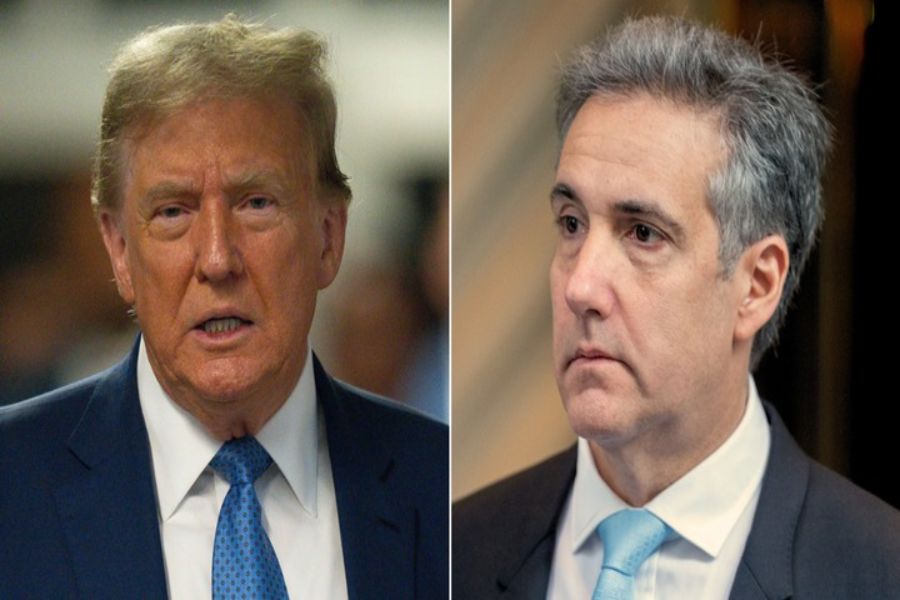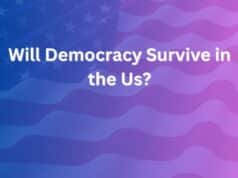
As the high-profile criminal trial of former President Donald Trump moves toward its conclusion in New York, the courtroom has been a scene of intense legal arguments and dramatic testimonies.
Trump is facing 34 counts of falsifying business records, charges tied to a $130,000 payment made to adult film actress Stormy Daniels to silence her from disclosing an alleged sexual encounter with him prior to the 2016 presidential election. Trump has consistently denied these allegations and pleaded not guilty to all charges.
The latest developments in the trial saw Trump’s defense team calling for an outright dismissal of the case after the prosecution rested its case, a standard yet seldom granted request in criminal trials. The call for dismissal came shortly after the conclusion of testimony from Michael Cohen, Trump’s estranged former lawyer and the prosecution’s star witness, who spent four days on the stand.
Cohen, who has had a tumultuous relationship with Trump, transitioning from a close confidante to a fierce critic, testified about his direct involvement in the payment to Daniels. He claimed that at Trump’s behest, he facilitated the payment through a home equity line of credit to keep the story from influencing the election, a claim that forms the cornerstone of the prosecution’s case.
During his testimony, Cohen admitted to appropriating funds from the Trump Organization as a form of “self-help” after feeling shortchanged on his annual bonus, a revelation that cast a shadow on his credibility.
This was seized upon by Trump’s defense attorney, Todd Blanche, who argued that Cohen’s history of lying and his criminal record undermine his reliability as a witness. Blanche emphasized that the prosecution’s case leaned heavily on Cohen’s testimony, which he argued was insufficient to merit a conviction.
In response, prosecutor Matthew Colangelo argued that the evidence, including documents and Cohen’s detailed testimony, sufficiently supported the charges. He contended that Trump orchestrated the sequence of events that led to the falsifying of business records, meeting the criteria necessary under New York law.
The trial also witnessed moments of courtroom drama, particularly involving Robert Costello, another witness for the defense and a former legal adviser to Cohen. Costello’s testimony attempted to further discredit Cohen by stating that Cohen had repeatedly insisted Trump was unaware of the payments to Daniels.
However, his demeanor and reactions to objections from the prosecution led to a reprimand from Justice Juan Merchan, who at one point expelled journalists from the courtroom to admonish Costello for inappropriate conduct, including giving ‘side eye’ and other expressions of dissent.
As the trial progresses, the defense’s strategy appears to pivot on undermining Cohen’s testimony and emphasizing the lack of direct evidence tying Trump to the alleged falsification of business records. The defense highlighted that the description of the payments as “retainer fees” in business records was consistent with legal compensation, not an attempt to mislead or conceal.
Justice Merchan’s role in the trial has been notably firm. He maintains courtroom decorum and repeatedly clarifies the bounds of acceptable legal argumentation. His decisions in the coming days, especially regarding the motion to dismiss, will be pivotal as both sides prepare for closing arguments scheduled for next week.
The hush money trial of Donald Trump, which has captured the nation’s attention, reverberates far beyond the confines of the courtroom, underscoring its potential ramifications for Trump’s political legacy and the broader American political landscape.
The trial’s outcome may significantly influence public perception of Trump as he hints at a potential run in the upcoming presidential elections. A conviction could tarnish his image, possibly deterring some supporters, while an acquittal might reinforce his claims of political persecution, potentially rallying his base even further.
In the context of American politics, where the former president still holds considerable sway within the Republican Party, the implications of this trial are immense. It tests the judicial boundaries concerning former presidents and sets a precedent for how legal issues are perceived in the political arena. The intense media scrutiny reflects the trial’s status as a litmus test for the integrity of U.S. institutions and the rule of law, particularly in politically charged cases.
As the trial concludes, the anticipation surrounding the jury’s deliberations grows. The defense team, not yet resting on their initial arguments, might introduce new evidence or testimonies that could sway the proceedings. The primary arguments, however, have been presented, and the jury’s decision will hinge on whether they find the presented evidence credible and sufficient for a conviction.
The possibility of Judge Merchan dismissing the case adds another layer of suspense. Such a decision would circumvent the jury’s determination, potentially leading to a significant public and legal uproar, given the high stakes of the trial. Regardless of the outcome, the final phases of this trial are poised to be as contentious and scrutinized as the earlier proceedings, holding significant implications for all involved and for the nation’s political climate moving forward.








